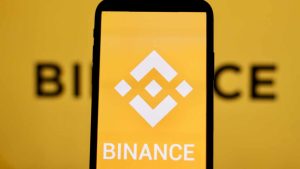China, Hong Kong, Thailand, and UAE Trial Cross-Border Transactions With Digital Currencies – Finance Bitcoin News

The monetary authorities of four jurisdictions in Asia have carried out tests with international settlements using state-issued digital currencies. Cross-border payments and foreign exchange transactions totaling over $22 million were made as part of the pilot project with the participation of the Bank for International Settlements.
Asian Central Banks Pilot Real-Value International Settlements With Digital Currencies
The monetary policy regulators of China, Hong Kong, Thailand, and the United Arab Emirates have conducted a trial of cross-border payments with digital currencies issued by them. The successful completion of the pilot was announced by the Bank for International Settlement (BIS) Innovation Hub Hong Kong Centre.
The tests, which took place between Aug. 15 and Sept. 23, covered real-value transactions. They were processed through a distributed ledger platform called Mbridge, a payment project initiated by the Hong Kong Monetary Authority, Bank of Thailand, and the BIS Innovation Hub in 2019. The People’s Bank of China and the Central Bank of UAE joined in 2021.
During the trial, 20 commercial banks employed the platform to settle various kinds of payments for corporate customers, mainly in cross-border trade, the BIS explained in a post on Linkedin. “Over $12 million in value was issued onto the platform facilitating over 160 cross-border payments and FX transactions totalling more than $22 million in value,” it detailed.
Among the participants were the Industrial and Commercial Bank of China, the country’s largest lender, and its Abu Dhabi brand and ICBC (Asia) subsidiary in Hong Kong, according to Financial News, the official newspaper of the PBOC. Also, Bank of China’s Zhejiang branch made payments in digital yuan (eCNY) with HSBC and Siam Commercial Bank for two hi-tech companies in the province.
The report did not provide more details about the other currencies used, but besides China, which has been expanding the pilot project for the eCNY, Hong Kong, the United Arab Emirates, and Thailand have been testing central bank digital currencies (CBDCs) as well, the South China Morning Post noted. The Hong Kong-based publication also remarked that the experiment could undermine the role of the U.S. dollar in foreign trade if banks could settle directly without the greenback.
Other nations such as Russia have been also aiming for the same with their own digital currency projects. According to a recent report, the Russian Federation intends to use the digital ruble for settlements with China, its key ally and trading partner amid a geopolitical and economic clash with the West over Ukraine. Moscow wants to launch settlements with the CBDC early next year.
In its announcement, the BIS said that a detailed report on the progress of the international payment project will be released in October. The document will cover aspects such as technical design, legal, policy, and other regulatory considerations, and present the future roadmap for the Mbridge platform.
Do you expect CBDC projects like the one described in the report to challenge the role of the U.S. dollar in global trade? Share your thoughts on the subject in the comments section below.
Image Credits: Shutterstock, Pixabay, Wiki Commons
Disclaimer: This article is for informational purposes only. It is not a direct offer or solicitation of an offer to buy or sell, or a recommendation or endorsement of any products, services, or companies. Bitcoin.com does not provide investment, tax, legal, or accounting advice. Neither the company nor the author is responsible, directly or indirectly, for any damage or loss caused or alleged to be caused by or in connection with the use of or reliance on any content, goods or services mentioned in this article.













